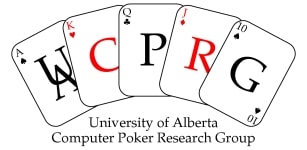

Before the advent of real-money online poker servers, there was the Internet Relay Chat (IRC) poker server. The server was programmed by Todd Mummert, with support code by Greg Reynolds, and other Usenet rec.gambling.poke enthusiasts.
The participants in these games were mostly computer geeks with a passion for poker. Many were serious students of the game, armed with the analytical skills needed to understand the mathematics, and all other aspects of advanced poker strategy.
As a result, the IRC games were probably the best free-money games ever played on the Internet (much better than the free-money games available on the major online servers today). Higher tiered IRC games, such as #holdem2 and #holdem3, required larger bankrolls to qualify, so only players who won consistently in lower games were eligible. Some of these people were regular $20-40 casino players, and used IRC to explore the boundaries of good strategy and further hone their abilities.
One IRC regular, Chris "JESUS" Ferguson, went on to become the World Champion in 2000, and has won six World Series of Poker championship braclets (and counting). Others, including Jay "Sippy" Sipelstein, and "Tiltboy" Perry Friedman, have also won gold braclets, and many others such as Steve Brecher, Paul Phillips, and Greg Raymer are accomplished tournament players.
Sadly, the IRC games are now gone (but might be resurrected one day).
Michael Maurer wrote a program called Observer that sat in on IRC poker channels and quietly logged the details of every game it witnessed.
This resulted in the collection of the more than 10 million complete hands of poker (from 1995-2001) that constitute the IRC Poker Database.
The IRC data may be useful to poker programming researchers and hobbyists. Basic information (such as decoding tar.gz files) is not provided here. Users are encouraged to post their methods and results to the GNU Poker Source discussion group.
In the past, the IRC data has been used to address some interesting questions, such as Michael Maurer's early studies of Variance in IRC Hold'em and Variance in Short-Handed Hold'em.